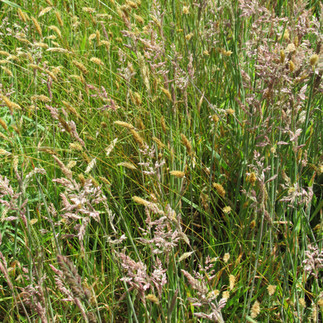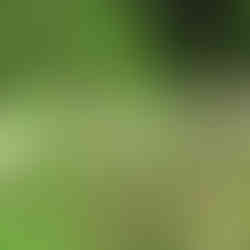June 2022
- Carolyn Thompson

- Sep 3, 2022
- 3 min read
Once again the month was described by the MET Office as 'mostly quiet and uneventful'. It doesn't fit the description of the month we experienced; on The Lizard we rarely fit into any weather report. It was a mixture of very warm sunny days, peaking on the 17th with the hottest day of the year. This warmth was then interspersed with intense rainfall and thunderstorms culminating in flooding along the South West railway line at the end of the month. But mild throughout.
Worrying signs of climate breakdown confusion - around the coastal waters in Cornwall there appeared hundreds of octopuses. One excited fisherman caught 150 in a day, compared to his usual catch of one or two per year. No one seemed to know where they had come from or why they were in our local waters. Should this level of slaughter be allowed? Somewhere in the oceans there must be a place with 150 less octopuses and now that they have been killed, there are less available for breeding. Does this matter? I don't know, but it doesn't seem right to kill animals in large numbers just because they have been found in our local sea water.
The field is always at its most lush in June. It is a riot of colour and alive with insects, birds and mammals. All the grasses, now fully grown, stand upright, sturdy and verdant; a mix of sheep's fescue, creeping bent, the lovely elegant quaking grass, yorkshire fog, (I know - what is it doing in Cornwall?), sweet vernal grass, meadow barley, soft brome and many others that I cannot identify. This time last year I promised I would get a book on grasses and learn more about them - have I got that book? Have I learnt more about grasses? Once more thing to go on the ever growing 'To Do' list. There has been a magnificent display of ox eye daisies with poppies and campions in front of some digging work that has gone on in the field. It seems that wherever you disturb land, a host of new growth comes to the surface.
The thistles continue to thrive and the dramatic and regal shape of the marsh thistle is a bold presence down by the riverbank. Water hemlock covers the lower bank of the river although, similar to the creeping thistles there are far less of them. We thought the thistles would take over the field this year but that award has been won by the ragwort plants which have appeared all over the land, garden, allotment and walls. They have yet to grow tall and flower but they dominate all the new growth. The enormous basal leaves of the burdock plants have also been spotted at the top of the field by the side of the old farm buildings - they have not appeared before now. By the end of the month the roses were in full bloom and this year's weather has done them proud, they are all in very good condition and produce an abundance of exquisite blooms throughout the month. Dog roses, peonies, cornflower, marigold all contribute to the colour scheme and the giant hogweed rises many feet above the hydrangeas which spill out of the hedges, heavy with blooms. It is the best year so far for variety of flower and scale of the colonies of each species.
The birds also flourished, although nationwide many are in deep trouble as their numbers dwindle. The RSPB reports that swifts, curlews, corncrakes and puffins have all declined catastrophically and turtle doves in particular have declined by 93%. Millions have been shot as they migrate over winter - it beggars belief. A hunting ban has now operated since 2021 in France, Portugal and Spain but who knows whether it will continue enough to allow the turtle dove to survive? Meanwhile back on the land here in The Lizard we have had many swallows, a few swifts, many goldfinch, blue tits, woodpeckers, siskins, dunnocks, wrens and the usual wood pigeons, crows, robins, blackbirds, gulls and buzzards. A veritable orchestra at dawn - no really, I love it. The RSPB bird seed shop is doing very well out of me and so indeed, is the visiting squirrel who defies any notion that we had about the baffle stopping these flying rats from supping at the bird feeder. How this animal manages to fly through the air, completely bi-passing the 'squirrel baffle' - well, it certainly baffles us.







Comments